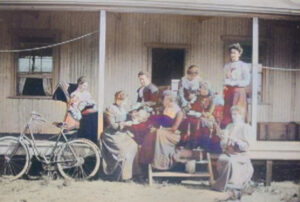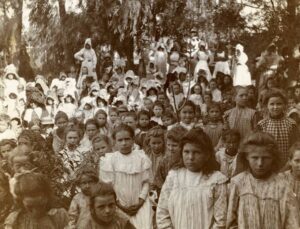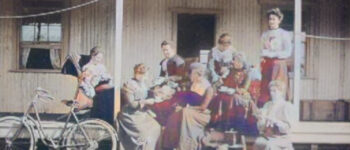1902: The Learned Eleventh
May 4, 2022
By AHNZ
 One hundred twenty years ago today in New Zealand history, 4 May, 1902, The Learned Eleventh set out on their way to South Africa. Our country, along with others, had completed the conquest of the sovereign nation of South Africa and it had not been easy.
One hundred twenty years ago today in New Zealand history, 4 May, 1902, The Learned Eleventh set out on their way to South Africa. Our country, along with others, had completed the conquest of the sovereign nation of South Africa and it had not been easy.
The Boer wanted to retain their own group identity and run their own country with their own language and culture and by their own rules. This would not do, especially when it turned out that the location they had trekked to in order to do so was in proximity to gold and diamonds. Britain and her colonies had to do something.
“Our victory involved deporting their fighting men to Bermuda, St. Helena, and British India. The women and children we rounded up in Concentration Camps for re-education. Their stock we killed. Their farms we burned, their earth we scorched and salted.” – 1899: Boer War, AHNZ
After sending 10 contingents of fighters (although our part in the fighting mainly involved burning farms) New Zealand sent an 11th of learned women. There were 20 such ladies, sent to be school teachers.
It’s no good destroying the economic and social structure of a country, it had to be colonised with British values as well. After all, if South Africans were permitted to educate their own children they might grow up with a national identity of their own and we can’t have that!
“Members of the ‘Learned Eleventh’ – a 20-strong group of New Zealand teachers selected to work in schools inside Boer concentration camps in South Africa. The group was dubbed the ‘Learned Eleventh’ by Acting Premier Sir Joseph Ward in reference to the 10 military contingents that had preceded them. The teachers left for South Africa on the SS Westralia on 4 May 1902.” – NZ History.govt
“In 1902, after winning coveted teaching contacts, twenty New Zealand women travelled to South Africa and were stationed in the concentration camps created by the Anglo-Boer war, charged with the mission of educating and anglicising Boer children displaced by the British ‘scorched earth’ policy. Fighting with the school-book rather than the sword, the teachers exposed not only their pupils, but themselves, to entirely new ways of life. ” – Teachers for South Africa: New Zealand women at the South African war concentration camps, Ellen Ellis (2010)
When the camp system was dismantled, the teachers found jobs at schools in the towns or countryside. Most decided to remain in South Africa after finishing the term of their appointment. Only six of the 20 teachers returned to New Zealand, changed forever by their experiences in South Africa¹.
Addendum: New Zealand punched above its weight when it came to supplying troops for the Boer War.
 “A crowd of Boer children, photographed inside of a concentration camp. One in four would not make it out alive.”
“A crowd of Boer children, photographed inside of a concentration camp. One in four would not make it out alive.”—
1 Ref. The Anglo Boer War and related history Group, Facebook (2021)
Image ref. Private collection, Joy Bennett; Te Ara. Colorised by AHNZ
Ref. 1899: Boer War
Ref. 1900: Boer War Parade
Ref. 1901: Shoot the Boer
 Like Comment Share
Like Comment Share





